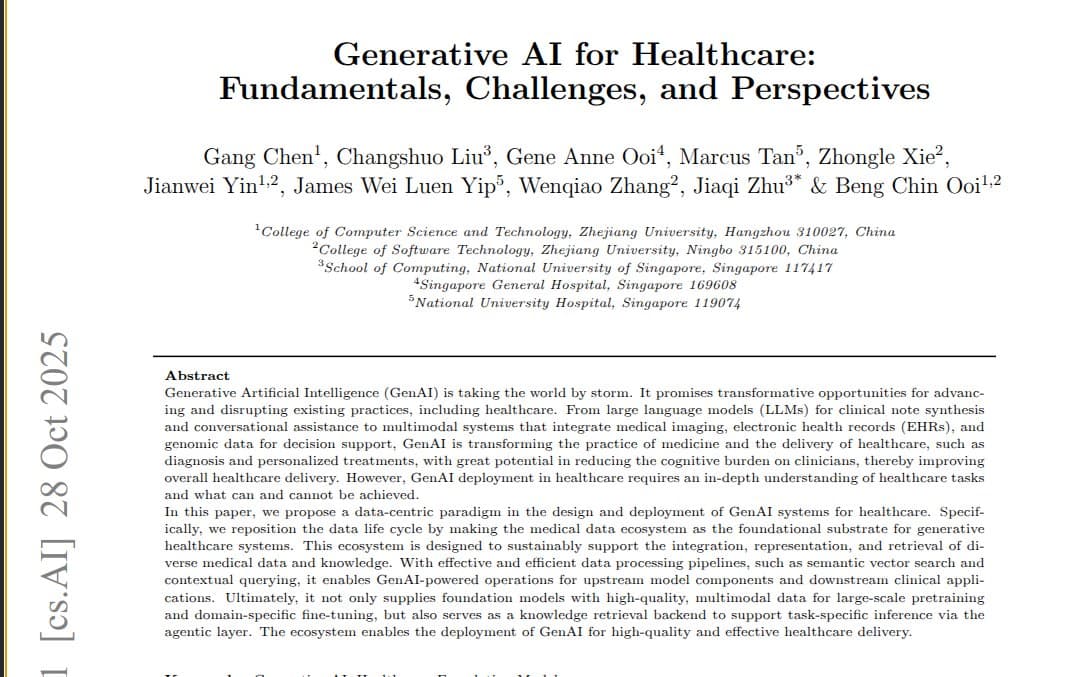New Research Proposes SAGE-Health System to Unify Disconnected Medical Data for AI

A new research paper, "Generative AI for Healthcare: Fundamentals, Challenges, and Perspectives," authored by Rohan Paul, introduces a novel framework called SAGE-Health designed to overcome significant data fragmentation and governance issues hindering the scalability of artificial intelligence in healthcare. The paper posits that current medical data environments, characterized by disparate formats and poor governance, impede effective AI model updates and deployment. Paul announced the paper's findings, stating, > "The paper says healthcare AI scales when it runs on a living, well governed data system."
The proposed SAGE-Health system aims to transform raw medical records into clean, structured data that can seamlessly feed AI models and applications. This innovative architecture features a robust data layer leveraging a medical lakehouse, common schemas, embeddings, and knowledge graphs, while meticulously ensuring privacy and data provenance. Industry experts recognize that fragmented data, siloed systems, and a lack of standardized formats are major obstacles to developing effective healthcare AI solutions, making such a unified approach critical.
Central to SAGE-Health is its model layer, which hosts advanced foundation models and facilitates their adaptation through techniques like prompting and adapter tuning, all while maintaining data security across various sites. This approach addresses the complexities of deploying large AI models in sensitive healthcare environments, where data safety and model relevance are paramount. Recent advancements in foundation models show their potential in healthcare, but tailored adaptation remains key for practical application.
An intelligent agent layer further enhances the system by planning tasks, retrieving evidence, selecting appropriate models, conducting safety checks, and logging feedback. This layer acts as a crucial orchestrator, ensuring AI applications are grounded in evidence and operate safely within clinical workflows. The paper also highlights two critical feedback loops that continuously improve both data quality and model performance through clinician edits, performance signals, and drift checks.
Illustrating its practical application, the paper describes SAGE-Health's utility in radiology, where it can retrieve similar cases, draft initial reports, and then refine them based on patient history and expert clinician input. This iterative process allows the system to learn from real-world usage, ensuring outputs are evidence-based and seamlessly integrate into existing medical practices. The framework promises a future where healthcare AI systems are adaptive, reliable, and deeply integrated into clinical decision-making.